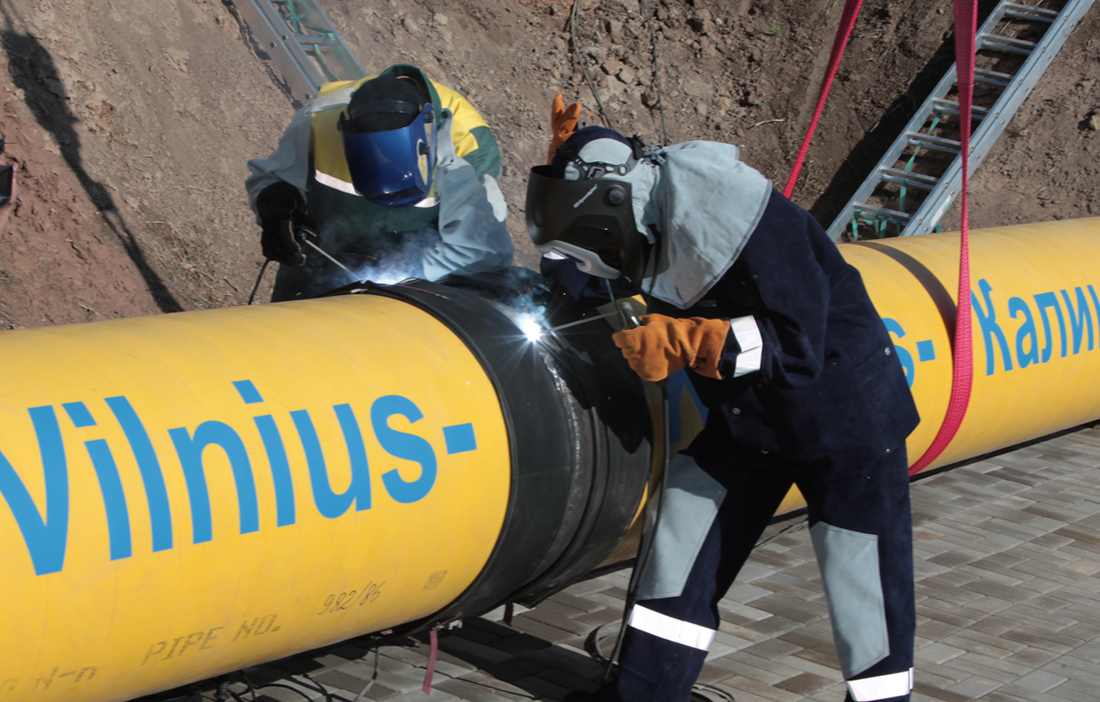
Lithuania Decides to Unbundle Pipelines From Gazprom’s Control
Publication: Eurasia Daily Monitor Volume: 8 Issue: 130
By:

On June 30, the Lithuanian parliament adopted legislation barring the supplier of natural gas (in this case, Gazprom) from owning or operating pipelines in the country. This conforms with the European Union’s Third Package of energy market legislation, which was adopted by the EU in 2009, went into effect in March 2011, and is due for full implementation by 2014. It requires “unbundling” (separating) the gas supply business from the transportation business, if both are concentrated in the same hands.
In practice, this means that the gas supplier to a given market may not own or operate the pipelines in that same market. The EU’s legislation is intended to open the gas markets to competition and diversification of suppliers. By separating transportation from supply, it helps prevent or reverse monopolization by a supplier such as Gazprom that controls the pipelines. Such is the case most acutely in the Baltic States.
With the June 30 vote in its parliament, Lithuania becomes the first EU member country to start implementing this EU legislation on its own territory. The vote, on the final day of the parliament’s spring-summer session, coincided with US Secretary of State Hillary Clinton’s visit to Vilnius and the announcement of agreements with US companies to participate in liquefied natural gas (LNG) projects in Lithuania (see EDM, July 5).
The Lithuanian legislation is intended to de-monopolize the market by opening access for potential suppliers, other than Gazprom, through the existing pipelines. This means separating (unbundling) the pipelines from Gazprom’s control. The legislation consists of amendments to Lithuania’s Natural Gas Law, as well as an enabling law for the government to implement the unbundling. Under its terms, Gazprom will have to divest itself of co-ownership (and de facto control) of the company Lietuvos Dujos (Lithuanian Gas). Through this company, Gazprom combines the role of gas supplier with that of pipeline system co-owner and operator. The new law stipulates separating the existing gas transmission and distribution pipelines from the Gazprom-controlled Lietuvos Dujos. The latter will be able to continue as gas importer from Gazprom; but the transmission pipelines will pass under state control, and the distribution to the end consumers will be handled as a distinct business. The law is to take full effect in 2013 (BNS, Delfi, June 30, July 1).
The law passed with 81 votes in favor, 23 opposed, and 7 abstentions in the Lithuanian parliament. Social-Democrat deputies voted against the law, arguing that the cost of re-purchasing the pipelines might be prohibitive. A Social-Democrat government had sold major stakes in Lietuvos Dujos in 2002-2004 to Gazprom and E.ON Ruhrgas. The current shareholder structure includes Gazprom with 37 percent (and a rotating board chairmanship), its German ally Ruhrgas with 39 percent, the Lithuanian state with 18 percent, and some small shareholders.
Lietuvos Dujos’s board members, Valery Golubev (board chairman until recently) and Kirill Seleznev, are Gazprom’s delegates there, and concurrently board members of Gazprom; while Golubev himself is a Gazprom Vice-Chairman. Their dual status places them in a conflict-of-interests situation. Thus, Gazprom’s members of the Lietuvos Dujos board supposedly represent Lithuania in negotiating with Gazprom’s board, on which they also sit, about the gas price for Lithuanian consumers. Golubev is involved in a similar situation in Moldova, where he chairs the board of the Gazprom-controlled Moldova Gaz, simultaneously with his vice-chairmanship at Gazprom. He was associated in St. Petersburg during the 1990’s with Russia’s current Prime Minister, Vladimir Putin; and was also a KGB officer prior to that, according to his official biography at Gazprom (https://www.gazprom.com/management/board/golubev).
On the day of the Lithuanian parliament’s vote, Gazprom CEO Aleksei Miller warned that “this will not go unnoticed” (Interfax, June 30). Moscow tried hard to forestall the unbundling of pipelines from Gazprom in Lithuania and other EU countries. During 2010, Gazprom and Ruhrgas jointly demanded that Lithuania should strictly observe the shareholders’ agreement – i.e., the supply monopoly that the EU’s legislation is meant to overcome. Gazprom and Ruhrgas also asked the European Commission for an exemption in their favor in Lithuania; but the commission held firm. Russian Prime Minister Vladimir Putin vituperated against the EU’s energy market-legislation, citing Lithuania’s intention to implement it, during his visits to Germany and to the EU in Brussels.
Gazprom has responded through price discrimination against Lithuania, both as economic retaliation and as political wedge-drawing between the Baltic States. From January 2011 onward, Gazprom has granted a price discount to Estonia and Latvia, on condition that they maintain gas purchases this year at the level of 2007 (the last pre-crisis year). The discount is generally said to be 15 percent below the prices stipulated in the long-term, take-or-pay agreements. That discount is no special privilege for Estonia and Latvia, but rather a temporary concession that Gazprom has also granted to many European customers, amid slumping demand (at that juncture) and growing competition from LNG. However, Gazprom has refused a market-based discount to Lithuania, explicitly linking this refusal with Lithuania’s reform plans. Thus, Gazprom penalizes a reform-willing EU member country for implementing EU legislation. Lithuania has asked the European Commission to investigate Gazprom’s apparent abuse of its monopoly position in the country (see EDM, February 10).
The Lithuanian Confederation of Industrialists (headed by Bronislovas Lubys, main shareholder of the Achema fertilizer plant) is worried about even higher prices of Russian gas, affecting both industry and household consumers, following the parliamentary vote (Delfi, July 2). This concern can resonate with many in the short term, but it does indirectly reflect the deeper problem: as long as Gazprom controls the pipelines, it can block any competitor from entering the market, and from this monopoly position dictate prices to Lithuania and the other Baltic States. Recognizing this basic problem, the Lithuanian government and parliamentary majority have decided to implement the EU-mandated divestiture of pipelines from Gazprom’s control, without unnecessary delays.




